The survey of East Lothian by Adair in 1682 was much better than earlier attempts; however, the map did not get published until 1736, which was after Adair’s death. After its publication, it became the standard piece of reference for the remaining part of the century until it was superseded by William Forrest’s survey of […]
Fountainhall or Penkaet Castle
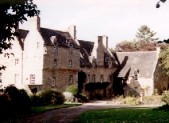
Fountainhall or Penkaet Castle is a Category A Listed building (listed in 1971), and it was built over 400 years ago. It is a fine example of a Laird’s home, which like many homes of this era has subsequently undergone several grouped phases of building, resulting in four interlocked blocks of cream sandstone buildings with […]
Glenkinchie Distillery

Situated near Pencaitland is the one of the finest malt distilleries of Scotland. It is set in the valley of the Kinchie Burn. Founded back in 1837, Milton Distillery as it was known was set up by brothers George and John Rate. Glenkinchie Distillery, as it later became known, is now owned by Diageo (who […]
Flooding at Pencaitland and Ormiston
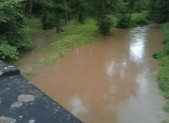
There are locations in and around the villages of Pencaitland and Ormiston that have been affected by flooding after heavy rain. Various approaches to the villages of Pencaitland and Ormiston are generally quite difficult to navigate due to the River Tyne flooding and local run-off to low-lying parts of the villages. The River Tyne runs […]
River Tyne
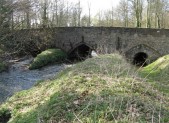
The River Tyne begins in the Moorfoot Hills, near Tynehead, Midlothian, and flows through East Lothian to the estuary near Belhaven. The river flows approximately 30 miles and passes on the southern side of Ormiston, through Winton estate, disects the village of Pencaitland into Easter Pencaitland and Wester Pencaitland under a three-arched bridge dating from […]
Woodhall Colliery
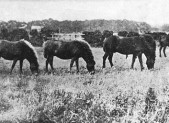
Woodhall Colliery was the only pit owned by the Woodhall Coal Company. Sunk in 1903, it was designed to produce coal for 20 years but favourable geological conditions allowed it to continue until 1944. Working pit ponies from Woodhall Colliery grazing in the East Lothian countryside on one of their rare ‘holidays’ above ground. Pit […]
History of Winton House
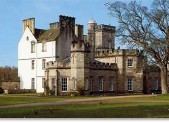
The Setons were granted the lands of Winton c.1152 byScotland’s King David I, which grant was re-confirmed in a charter to them, to Philip de Seton, from William the Lion in 1169. Philip bestowed Winton on his 2nd son who thus became de Winton and who’s descent Alan de Winton later married the heiress Margaret […]
Winton Mine
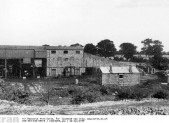
Winton Mine, opened as a ventilation mine in 1943 by the Ormiston Coal Company, was developed by the NCB in 1949 to mine coal. Along with Bellyford, Oxenford No.3 and Castle, it formed the NCB’s economic ‘Ormiston Scheme’ to work the Diamond Seam.. This is the mine’s small steel screening plant which had one ‘tippler’, […]
New Winton
From the eastern part of the village of Pencaitland a road leads off towards Tranent, passing the edge of the Winton estate to the left and the Bogg’s Holdings and Winton Hill farm on the right the road continues on, under the cropped railway bridge on into New Winton. Beyond New Winton is the peat-mire […]
Wolfstar
Originally the name appears to have been Ulfstruther signifying the Wolf’s Covert or hiding place. Other forms of the name are Foulstruther and Woolstruther. “de firmis duarum parcium Ville de Elphinstoun et Ulstruther, in warda ut supra” (Exchequer Rolls Volume IV) of also how in 1438 there is payment of £19, 13 shillings and 4d […]

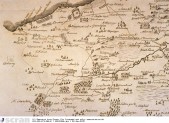
Recent Comments